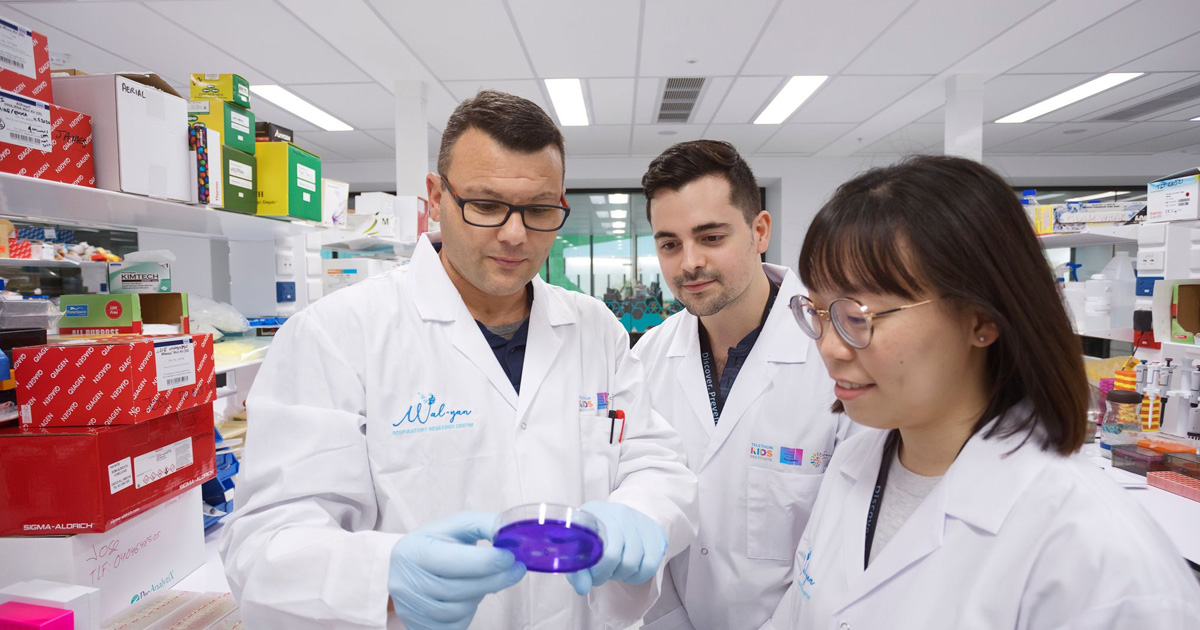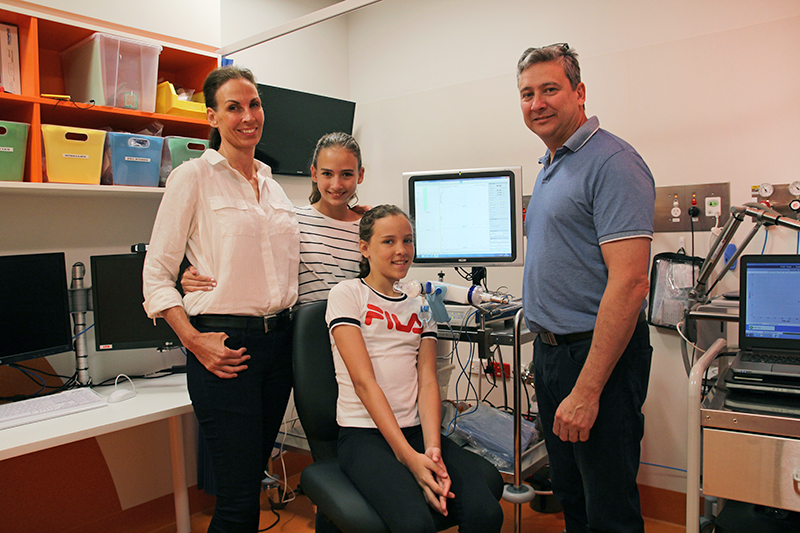Search
Research
The potential of phage therapy in cystic fibrosisThis review summarises the phage-microbe-human lung interactions in CF that must be addressed to successfully develop and deliver phage to CF airways
Research
Lung inflammation and simulated airway resistance in infants with cystic fibrosisCystic fibrosis (CF) is characterized by small airway disease; but central airways may also be affected. We hypothesized that airway resistance estimated from computational fluid dynamic (CFD) methodology in infants with CF was higher than controls and that early airway inflammation in infants with CF is associated with airway resistance.
Research
Evolution of pulmonary inflammation and nutritional status in infants and young children with cystic fibrosisImproved nutrition is the major proven benefit of newborn screening programmes for cystic fibrosis (CF) and is associated with better clinical outcomes.
Research
Value of serology in predicting Pseudomonas aeruginosa infection in young children with cystic fibrosiserology, predicting, Pseudomonas aeruginosa infection, young children, cystic fibrosis
News & Events
Telethon Institute awarded two national Centres of Research ExcellenceTelethon Institute awarded two national Centres of Research Excellence
Research
SYNERGY CF: Getting the best start to life - preventing early cystic fibrosis lung disease by solving the host-inflammation infection conundrumCystic fibrosis related progressive lung disease characterised by inflammation and infection commences soon after birth.

News & Events
Cure4CF Grant a boost for innovative Cystic Fibrosis researchA $350,000 Cure4 Cystic Fibrosis grant is set to propel the Wal-yan Respiratory Research Centre’s Phage WA program forward, supercharging its fight against antimicrobial resistant (AMR) lung infections in people with Cystic Fibrosis (CF) using cutting-edge phage therapy.

News & Events
New drug therapy provides hope for kids with cystic fibrosisThe Kids Research Institute Australia spin-off company, Respirion, received $20 million in funding to develop a promising new therapy.

News & Events
New drug therapy provides hope for kids with cystic fibrosisThe family of two girls with cystic fibrosis are hopeful after The Kids Research Institute Australia spin-off company, Respirion, receives $20 million in funding to develop a promising new therapy.
Research
Early nasal microbiota and subsequent respiratory tract infections in infants with cystic fibrosisRespiratory tract infections (RTIs) drive lung function decline in children with cystic fibrosis (CF). While the respiratory microbiota is clearly associated with RTI pathogenesis in infants without CF, data on infants with CF is scarce. We compared nasal microbiota development between infants with CF and controls and assessed associations between early-life nasal microbiota, RTIs, and antibiotic treatment in infants with CF.
